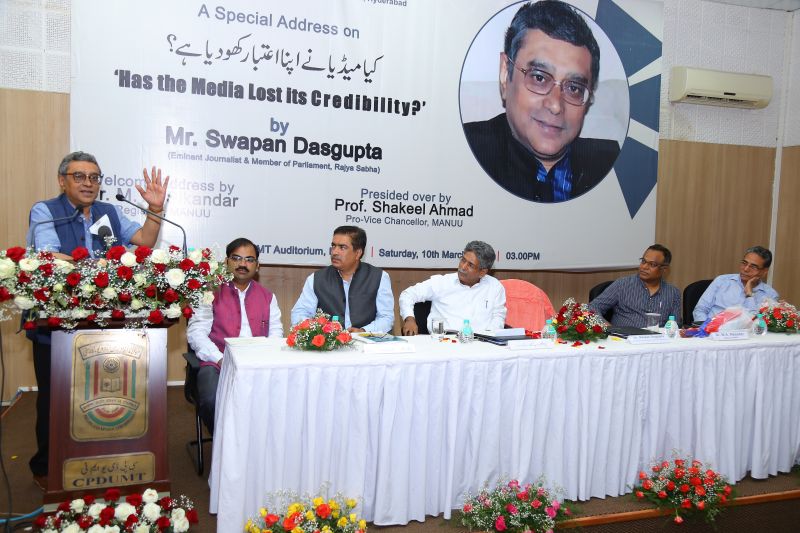Hyderabad: Though there are numerous complaints about the functioning of media, especially the electronic, the business houses that own media companies do not wish restrictions to be imposed on their functioning, noted scribe and Rajya Sabha member Swapan Dasgupta said here on Saturday.
Mr Dasgupta said that any restriction on media functioning was likely to be opposed by the owners because it would affect their profitability. “For the owners, running a media company is business, not charity… No one can control media except the viewer,” he told a large gathering of students, academics and others at Maulana Azad National Urdu University. His lecture, “Has the media lost its credibility?” was organized by the Department of Mass Communication and Journalism.
Mr Dasgupta said, ‘Media consumption has grown exponentially and this is because of the electronic media. The print media had some bar. But with television, that bar is now gone. Growth and credibility issue have always gone hand in hand’, he said. ‘Besides media used to be a one-way traffic, but now social media have enabled people to have a voice’, he added.
Mr Dasgupta, a popular columnist and TV debater was nominated to Rajya Sabha by the government in 2016. A year earlier he was awarded Padmabhushan.
Prof Shakeel Ahmad, Pro Vice-Chancellor, presided over the function while Dr M A Sikandar, Registrar, welcomed him. Prof Ehtesham Mohammad Khan, Dean and Head of the Mass Com Department, introduced the guest to the audience.
Mr Dasgupta said that Indian media had always been linked to politics. ‘Neutrality has never been a feature. Even in colonial times, there were newspapers with Indian and English ownership often working at a cross-purpose…’
He acknowledged that the media is “steeped in bias” but to say “this is one right and that one is wrong” would be a difficult task. It is the public that has to make the choice.
Dr Mohammad Fariyad, Associate Professor at the department of MCJ, convened the meeting while Mr Mustafa Ali Sarwari, another Associate Professor at the department, proposed the vote of thanks.

